
No. 63November 12, 2021
|
Matters of Concern Related to Education
Bill 74: Legislating the Alberta Government Attack on the Right to Post-Secondary Education
– Dr. Dougal MacDonald –
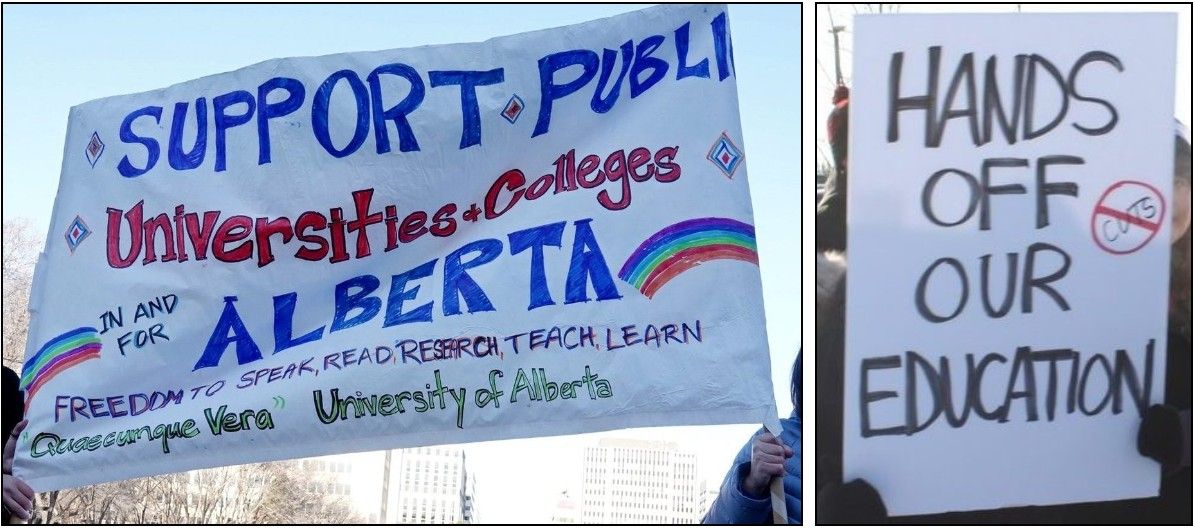
Alberta’s United Conservative Party (UCP) government introduced Bill 74, the Advanced Education Statutes Amendment Act, on October 26. According to the UCP, Bill 74 will “amend the Post-Secondary Learning Act and the Skilled Trades and Apprenticeship Education Act to align with the Alberta 2030 strategy,” the UCP’s new 10-year strategy for post-secondary education revealed on April 29. The Skilled Trades and Apprenticeship Education Act, which was introduced June 17 as Bill 67, will replace the Apprenticeship and Industry Training Act in early 2022.
As noted in the recent analysis published in Renewal Update,[1] the Alberta 2030 strategy openly attacks the right to post-secondary education. It reveals an intention to supply narrow private interests with skilled labour free of cost, which Bill 74 will enshrine in legislation. Alberta 2030 has nothing to do with educating the youth to acquire the knowledge and ability to think for themselves so as to build a bright future for themselves and the society they depend on for their living, and to contribute to the same internationally.
Bill 74 makes some key changes to the Post-Secondary Learning Act, which governs post-secondary education in Alberta, that:
– align the Post-Secondary Learning Act with the “vision and strategic direction” of Alberta 2030;
– establish a new superboard, the Minister’s Advisory Council on Higher Education and Skills, which will advise the Minister of Advanced Education on strategic goals and direction for post-secondary education, metrics for measuring the performance of post-secondary institutions, and any other matters;
– newly categorize post-secondary institutions as either universities or as polytechnics/colleges;
– limit boards of governors member terms to six consecutive years; and
– transfer authority to set tuition fees from the Minister to the boards of governors of post-secondary institutions.
Noteworthy here is the establishment of the Minister’s Advisory Council on Higher Education and Skills superboard, especially if it at all resembles the new “guiding coalition” superboard that the UCP created to oversee the implementation of Alberta 2030. The guiding coalition superboard clearly reinforces that the main aim of Alberta 2030 is to supply narrow private interests with skilled labour free of cost. It includes such worthies as Stephen Harper’s former chief of staff, the former CEO of the Canadian Association of Petroleum Producers, a UCP Member of the Legislative Assembly, the chair of the Business Council of Alberta, and a fellow of the arch-reactionary Macdonald-Laurier Institute. What qualifications do such people have to direct the future of post-secondary education in Alberta except to ensure that it is the hand servant of private industry?
Also noteworthy is placing the setting of tuition fees in the hands of the post-secondary institutions themselves. Alberta 2030 reveals that the long-term plan is for the post-secondary institutions to fund themselves as much as possible, and to further slash declining government financial support. One main way is to sell out to private donors. Another is for the post-secondary institutions to “spin off” commercial enterprises. The third main way is through mercilessly raising tuition fees. In April, the University of Alberta Board of Governors approved major tuition fee increases that will, at their most extreme, raise tuition to 104 per cent above its previous cost. The increases were condemned by both the Students’ Union and the Graduate Students’ Association.
Bill 74 makes some minor changes to Alberta’s new Skilled Trades and Apprenticeship Education Act. Of greater interest is how the new Act differs as a whole from its predecessor, the Apprenticeship and Industry Training Act. The main differences are that the new Act will:
– expand apprenticeship to more professions;
– shrink the regulatory framework;
– establish the Board of Skilled Trades; and
– expand opportunities for further education or career changes.
It is important to note that when Alberta Premier Kenney was Harper’s Minister of Employment and Social Development he was instrumental in implementing the 2013 Federal Skilled Trades Program which was aimed at people who wanted to become permanent residents based on being qualified in a skilled trade. At the time, Kenney specifically mentioned the importance of addressing shortages of skilled workers in the oil sands industry. In other words, this aimed at serving the needs of whichever monopolies required additional labour.
This suggests that any skilled trades legislation the UCP puts forward in Alberta will have the same general aim as the Federal Skilled Trades Program, i.e., to meet the needs of the monopolies for skilled labour. The main way in which the Skilled Trades and Apprenticeship Education Act differs from the Apprenticeship and Industry Training Act, its provincial predecessor, is that it expands and streamlines the apprenticeship process to that end. Meanwhile, the new Board of Skilled Trades will be there to oversee all to ensure that the expanded apprenticeship services to the monopolies are provided efficiently and expeditiously and as duly required.
Note
1. For an in-depth analysis of the Alberta 2030 strategy, see “Conclusions of Phony Government Consultations,” Renewal Update No. 40, October 6, 2021.
Stand with Indian Farmers!
Farmers in India Mark One Year of
Encampments at Delhi Border
– J. Singh –
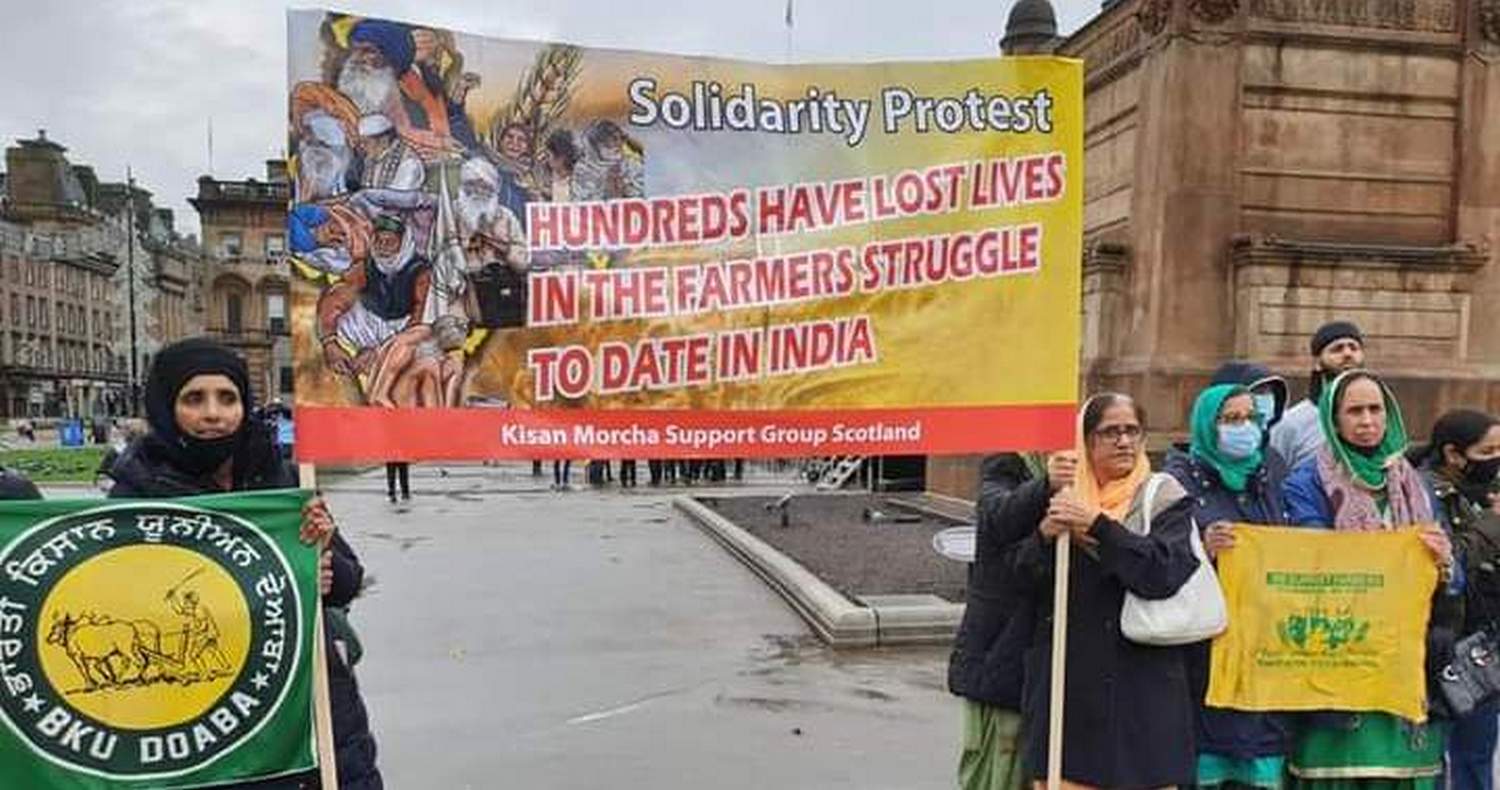
Supporters of Indian farmers protest the participation of Indian Prime Minister Narendra Modi in the UN Climate Summit in Glasgow, October 31, 2021.
As part of marking the one-year anniversary of the encampments surrounding Delhi, Sanyukta Kisan Morcha, an umbrella organization of farmers, has decided to send groups of 500 farmers to the Indian parliament every day, starting on November 29. On November 26, massive rallies will be held to mark the arrival of farmers at the Delhi borders, who smashed through the police barricades in Haryana and Uttar Pradesh.
A farmers’ mahapanchayat (mass meeting) was organized by the youth in Kala Sangha, Kapurthala, Punjab on November 6. Thousands of farmers came and spoke fearlessly about their resolve to keep fighting until the anti-farm laws are repealed. A young farmer pointed out that in the recent polls, the BJP has suffered a setback in 13 states, because the farmers’ movement has become a people’s movement across India. Another farmer pointed out that he has just returned from Kerala where people are holding rallies in support of farmers. He said that in Kerala, small tea farmers are all gone; the big monopolies have gobbled up their lands. Adani is building a huge port there; as a result small fishers are being put out of business. Due to the structure and laws, the Kerala government is not empowered to do anything on these matters. Kerala has a left-front government, but it is not able to defend the rights of people. We have to find solutions to this problem, the farmer pointed out. No matter which party is in power, it does not or cannot serve the interests of the people.
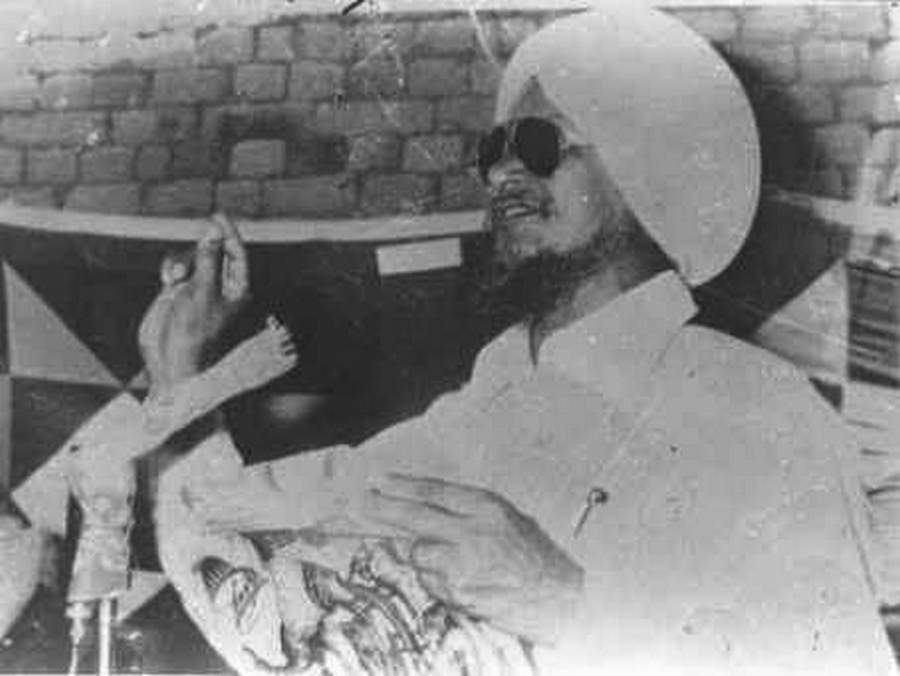
Punjabi poet Sant Ram Udasi |
On November 6, farmers at the morchas (protest encampments) surrounding Delhi celebrated the 35th anniversary of the death of Punjabi poet Sant Ram Udasi. His revolutionary poems and songs became songs of toilers and youth in the ’70s and ’80s. His songs inspired an entire generation, giving encouragement to all those who are fighting for a life of dignity and justice.
One of his songs became a great inspiration for farmers, workers, students, women, Dalits and all the oppressed:
Hardiyan de haaniyo Te sauniyan de saathiyo, kar lo dratiyan tiyaar
Chuko ve hathodeyan nun, ag kadho patharan chon, aj sanun lordi de angar
(Comrades of winter and summer crops, sharpen your sickles, lift your hammers, smashing rocks produce fire, we are in need of sparks)
He came from a Dalit background and his poetry decried all the indignities that are heaped on Dalits. He was tortured by the police agencies to silence him but they could not dampen his spirits.
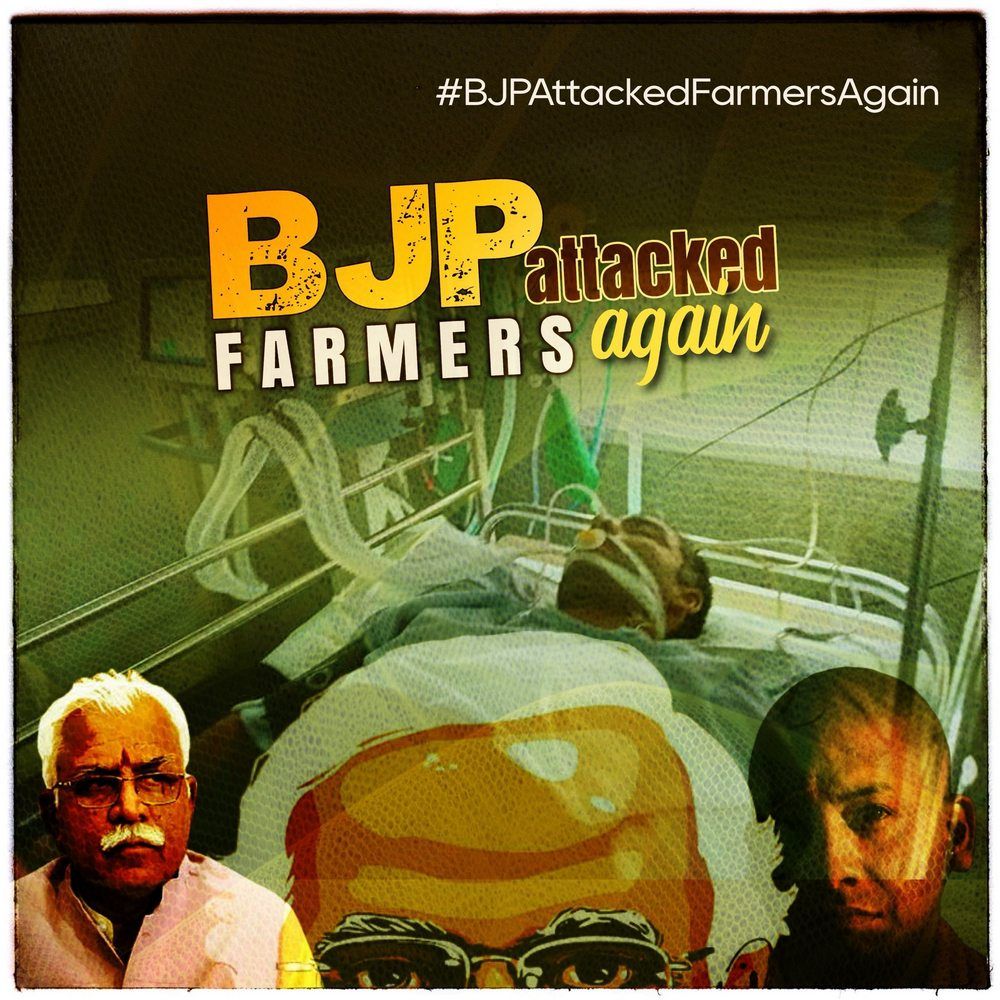 In Tripura, Muslims are being attacked by goons organized by affiliates of the BJP, under the watchful eyes of the agencies of the state and central government. Charges under the Unlawful Activities (Prevention) Act, 1967 (UAPA) have been slapped on more than 100 people, including two lawyers of the Supreme Court of India, who were part of a fact-finding committee.
In Tripura, Muslims are being attacked by goons organized by affiliates of the BJP, under the watchful eyes of the agencies of the state and central government. Charges under the Unlawful Activities (Prevention) Act, 1967 (UAPA) have been slapped on more than 100 people, including two lawyers of the Supreme Court of India, who were part of a fact-finding committee.
In Gauhati, Assam area, Sikhs are being evicted from their lands by the state, despite having settled there a long time ago. It is part of the strategy of the ruling elite to cause bloodshed by inciting religious hatred and attacks.
In Yuba City, California on November 7, thousands of people gathered to support the Indian farmers. They condemned the Indian state and its attacks on the farmers and attempts to divide the unity of people by attacking them on a religious basis. Singers, youth, women, farmers, city councillors all condemned the Indian government for its anti-farmers laws.
Yuba City, California, November 7, 2021
On November 7 many also marked the 104th anniversary of the Bolshevik Revolution in Russia. It opened a new path and established the first state of workers, farmers and other toilers. For the first time it provided universal franchise, free education, free health care and created a base for further achievements by the toilers. Many Indian revolutionaries, farmers and workers travelled to this new state to see with their own eyes what was being done by the workers. The Ghadar Party sent delegations to meet the leader of this Revolution, V.I. Lenin, and others. The lessons of the Great October Socialist Revolution and of the dismantling of the first workers’ state by counter-revolution continue to inspire people across the world to work out their strategy for renewal and renovation.
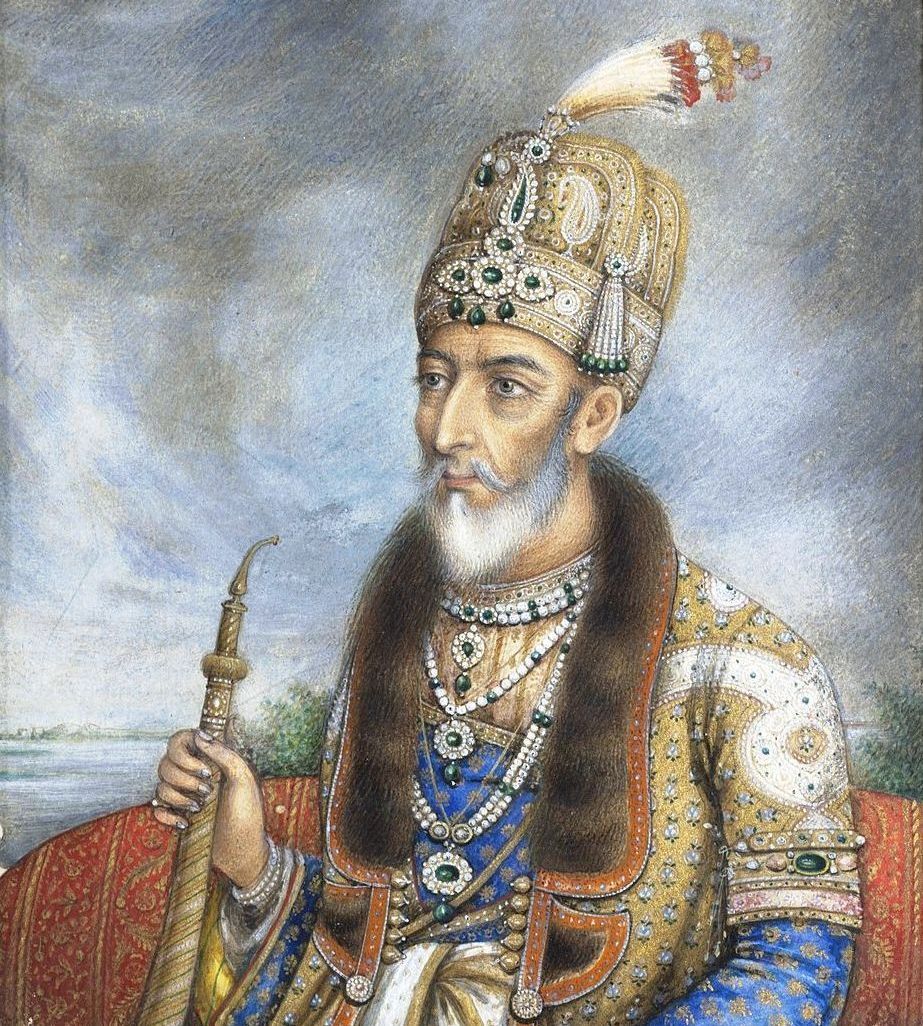
Bahadur Shah Zafar |
November 7 was also the 159th anniversary of the death of Bahadur Shah Zafar, who became leader of the great revolt of 1857, known as India’s First War of Independence. Zafar was 81 years old when the revolt broke out. He was a great poet and used his pen for the cause of the people and edited a paper called Payam E Azadi. The British considered this paper so dangerous that mere possession was considered a crime worthy of the death sentence. The British beheaded all his sons. They presented him with the heads of two of his sons on a platter, as punishment for his work. His couplets calling for revolt still ring in the streets of Delhi. He was exiled to Burma and died in Rangoon on November 7, 1862. One of the poems says:
Ek Aur Karo Dhava Dilli, Mazdooro Aur Kisano Aaj
Is Zulm Sitam Ki Nagari Ki, Eent Se Eent Baja Do Aaj
Awaz Zafar Ki Koochon Mein, Yeh Goonj Ghadar Ki Muhallon Mein
(One more assault against Delhi, Oh! Toilers of India
To smash the citadels of oppression and exploitation
Lanes, streets and neighbourhoods are echoing the call of Zafar)
(Photos: Kisan Ekta Morcha, Humanity First, N. Singh, S. Bal)
(To access articles individually click on the black headline.)
Send your articles, photographs, reports, views and comments to editormlpc@cpcml.ca




